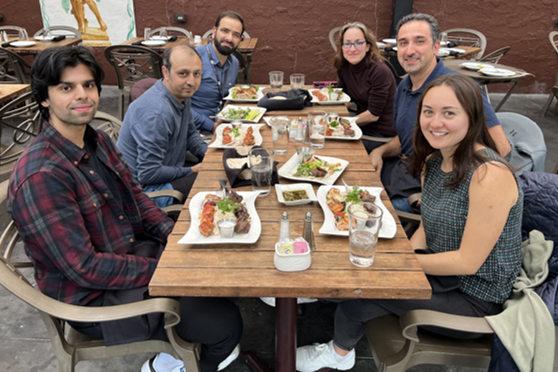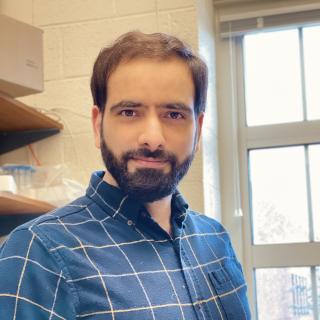Saloura Lab
Vassiliki Saloura, M.D., Ph.D.
Research
Protein methyltransferases (PMTs) and demethylases (PDMTs) are a class of approximately 100 enzymes that modify histone and non-histone proteins and were recently reported to be mutated, amplified and overexpressed in a significant proportion of cancers, including human-papilloma-virus (HPV)-negative head and neck squamous cell carcinoma (HNSCC).
Our laboratory aims to elucidate the role and the mechanisms through which protein methylation mediated by PMTs and PDMTs drives oncogenesis, therapy resistance and immune evasion in squamous cell carcinoma of the aerodigestive tract, with a special focus in HPV-negative HNSCC. Our goal is to develop a translational research program focusing on histone and non-histone protein methylation, and to introduce novel targeted PMT and/or PDMT inhibitors/degraders in clinical trials for head and neck cancer patients with relevant driver molecular phenotypes.
To achieve these goals, we employ a combination of high-throughput genomic and epigenomic methods, such as CUT&RUN/CUT&Tag assays combined with ATAC- and RNA-seq, proteomics-based approaches, single-cell technologies, biochemical and cancer biology assays. Experimental models include traditional cell lines, patient-derived cell lines, mouse models, organoids and tumor samples from patients with HPV-negative HNSCC.
Research efforts in the Saloura lab concentrate on three main overarching, inter-related projects:
Project 1: Elucidation of the oncogenic function of PMTs/PDMTs in HPV-negative HNSCC.
Our group aims to dissect the function of frequently amplified and/or overexpressed PMTs/PDMTs in HPV-negative HNSCC, and evaluate these as novel therapeutic targets. This entails experiments aiming to assess the catalytically-dependent and -independent functions of PMTs/PDMTs, identify direct downstream target genes, methylation substrates and interacting proteins, and evaluate prognostic significance in patients with HPV-negative HNSCC.
Project 2: The role of PMTs/PDMTs as immune modulators in HPV-negative HNSCC.
The overarching goal of this project is to dissect mechanisms through which PMTs/PDMTs affect the tumor microenvironment and antigen presentation processes in HPV-negative HNSCC, leading to decreased responses to immuno-oncologic therapeutic interventions.
Project 3: Development of inhibitors/degraders (PROTACs) targeting PMTs/PDMTs that function as oncogenic drivers in HPV-negative HNSCC.
Our group pursues the preclinical and clinical development of novel epigenetic therapeutics in squamous cell cancers of the upper aerodigestive tract, focusing on HPV-negative HNSCC, through intramural and extramural (academia, industry) collaborations.
Team
Lab Life

Introducing our lab members: Starting from the front on the right, we have Marie Luff, Arfa Moshiri, Vassiliki Saloura (PI), and on the left, Abbas Saeed, Jawad Akhtar, and Saleem Dar. October 2023, Bacchus restaurant.


